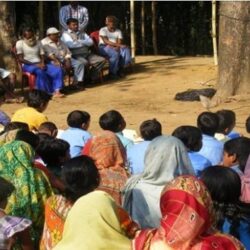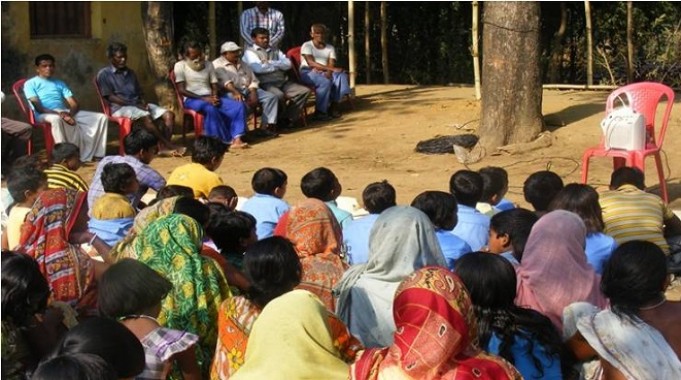
“As a mass medium at the local level, community radios can provide the link between community and science.” This was emphasized by Ajaya Dixit, Executive Director of the Institute for Social and Environmental Transition (ISET) in Nepal during his discussion on climate change and disaster resilience among community radio broadcasters, community media practitioners, and representatives of farmer organizations from South Asia.
Dixit advised the community radio stations that when they try to do this, they should not start with the ‘hard’ science. Instead, they are encouraged to build up “citizens’ science” where communities are led to reflect on their experiences. For example, in the last 10 years, people may be asked to collect their own observations of how rainfall, temperature, climate, and related things have changed. Farmers should do the talking to fellow farmers about these topics. Eventually, this should lead to a policy addressing what and how farmer organizations can play a role in a communication service meant for their peers.
Information generated by citizens’ science can be shared via community radio, according to Dixit. In so doing, the discussion of science becomes personalized and is framed related to the local community’s encounters. But the attempt to popularize and simplify things should be done with diligence so as not to lose the essence of scientific concepts such as climate change and disaster resilience. This can be worked out well in partnership with technical people from recognized authorities or scientists studying these phenomena.
Dixit also remarked that community radios are in an advantaged position to help transform the agricultural extension system. Knowledge services in a continuous fashion should be in the core of the extension function. But knowledge that works would need evidence or proofs to prove its value. Eventually, this knowledge can be used as the content for community radio broadcasts.
As ISET executive director, Dixit was a resource person during the AMARC training on community radio in disaster risk management held on November 1-3, 2017 in Lalitpur, Nepal.
Photo credit: comminit.com

